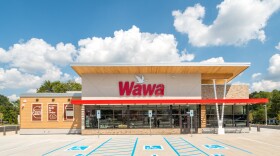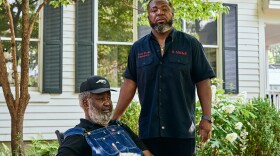The voted today in support of preempting state laws, like in North Carolina, and allowing for the expansion of municipal broadband.
At the center of the debate to expand such service are communities like the . Wilson built its own broadband network before the state legislature prohibited cities from competing with private broadband providers. TodayÔÇÖs vote gives Wilson and other small communities the economic muscle they need to expand and compete with big broadband companies.
Wilson isnÔÇÖt a big city ÔÇô fewer than 50,000 people. But because of a bold move city leaders made several years ago, Wilson functions like a big city.
ÔÇťSo in Historic Downtown Wilson our tag line is ÔÇťCrossroads of Charm and Innovation," said Kimberly Van Dyk.
Kimberly Van Dyk is WilsonÔÇÖs Director of Planning and Community Revitalization and she likes what she sees. Van Dyk says much of the positive economic and artistic growth in Wilson has to do with its highly touted fast speed broadband system called
ÔÇťHaving the infrastructure in place around technology as well as the asset of this really historic and charming downtown is a really interesting intersection and a lot of people are drawn to that," said Van Dyk.
Wilson didnÔÇÖt always have free WiFi downtown and in its arts spaces. It started in 2008 after the municipality built the ÔÇťGreenlightÔÇŁ broadband infrastructure.
General Manager Will Aycock says before ÔÇťGreenlight,ÔÇŁ he remembers traveling from fire station to fire station updating computers and GIS maps on fire trucks.
ÔÇťThat type of experience really led us to understand as an organization that we needed a higher capacity network infrastructure here in the community," said Aycock.
What makes ÔÇťGreenlightÔÇŁ stand out is not just its more than 7,000 internet customers ÔÇô it also provides Gigabit service ÔÇô the equivalent of 1,000 Megabits. The broadband speed in your average American home is 11.5 Megabits.
One company benefitting from the ultra fast "Greenlight" service is the visual effects company . The Wilson-based company has worked on top films like "Black Swan" and "The King's Speech." Aycock says they moved to Wilson because of its ultra high speed internet service.
ÔÇťWhat becomes extremely essential for these people engaged in these activities is upload speed, being able to very quickly and efficiently share the product that theyÔÇÖre generating with others and with the broader world," said Aycock.
The chairman of the FCC agrees. Tom Wheeler has said many times the internet should be ÔÇťfast, fair and openÔÇŁ for everyone.
Mike Eatmon is President of in Wilson. He opened his business in 2002. Eatmon says he remembers when he first heard about "Greenlight" and what it could offer. Soon, he was sold.
"That internet speed sped up my time," said Eatmon. "If something was to take me an hour, now it might take me 10 to 15 minutes. And time is money, everybody knows that."
The City of Wilson floated $35 million in bonds, a move approved by the state, in order to build its community broadband service. Wilson City Manager Grant Goings says they wanted a private partner to help, like Time Warner or Embarq, but those companies said ÔÇťno.ÔÇŁ
ÔÇťWe never set out to be first. Our motivating factor was not to be the first community in North Carolina or one of the first in the southeast to have this fiber to the home infrastructure. Our concern was not being last," said Goings.
Goings and other Wilson supporters attended today's FCC hearing in Washington, DC for the ÔÇťnet neutralityÔÇŁ or open internet vote.
Aycock said in a statement after the vote, "All possibilities are now on the table, whether through public-private partnerships or municipally-owned networks, to ensure North Carolina's businesses and residents remain competitive in the global economy."










